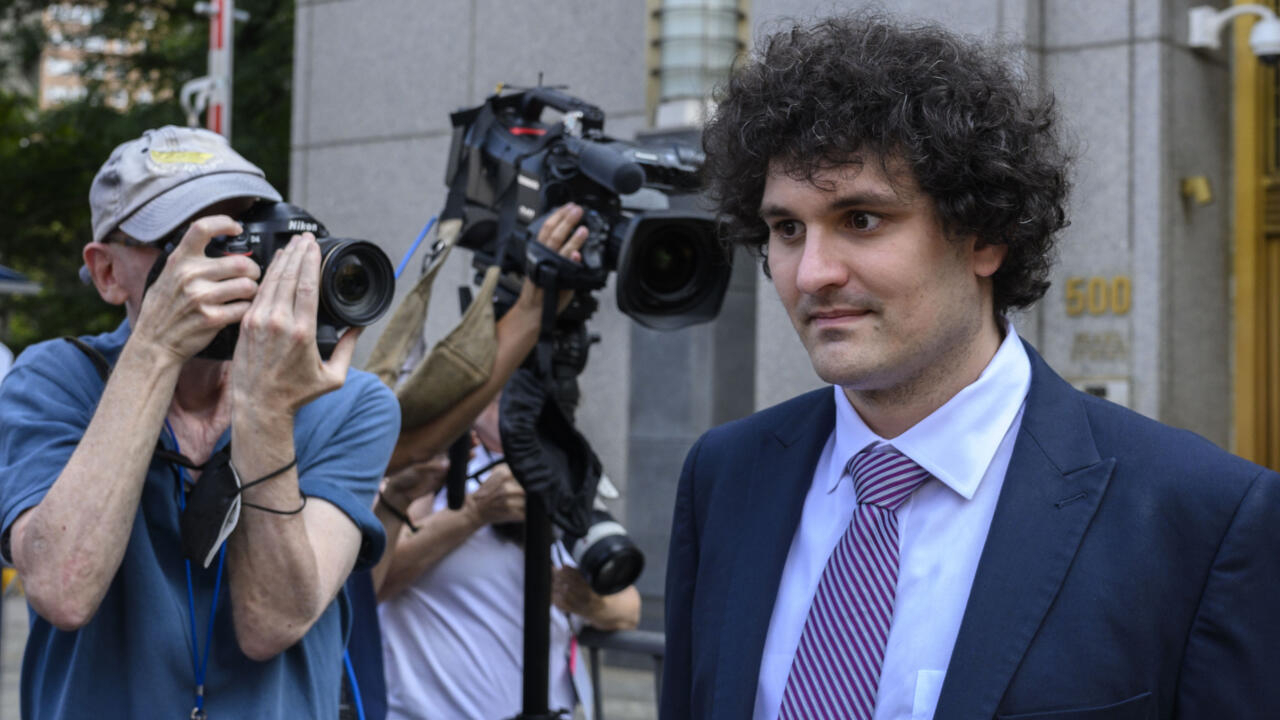Disgraced cryptocurrency wunderkind Sam Bankman-Fried was sentenced to 25 years in jail on Thursday following his conviction in one of the biggest financial fraud cases in history.
Issued on: 28/03/2024 – 17:17Modified: 28/03/2024 – 17:47
3 min
Advertising
US prosecutors were seeking a prison term of 40-50 years after a New York jury found Bankman-Fried, known by his initials SBF, guilty in November following a five-week trial that probed the one-time high roller’s spectacular fall.
During the hearing Bankman-Fried told the courtroom that he was “sorry about what happened at every stage. And there are things I should’ve done and things I shouldn’t have.”
They “built something beautiful,” Bankman-Fried said. “And I threw it all away.”
The final sentence was meted out by US District Judge Lewis Kaplan who used the hearing to carefully walk through the financial crimes committed by Bankman-Fried.
There was “never a word of remorse for the commission of a terrible crime,” the judge said, adding that there was a risk Bankman-Fried would commit crimes again.
With the sentencing now done, Bankman-Fried’s lawyers said they would appeal his conviction.
Calling Bankman-Fried’s seven-count conviction reflective of the defendant’s “unmatched greed and hubris,” the government’s sentencing request argued for significant jail time in light of fraud it estimates at more than $10 billion.
Bankman-Fried’s attorneys depicted their client as a diligent young man motivated by philanthropy who got in over his head, calling the government’s proposed sentence “barbaric.”
Their portrayal is similar to the one SBF’s defense presented at trial – which was quickly rejected by jurors after just five hours of deliberation.
Bankman-Fried’s defense team had asked for six years in prison, a sentence that would return him “promptly to a productive role in society,” said the attorneys led by Marc Mukasey.
FTX Implosion
A graduate of the Massachusetts Institute of Technology and a billionaire before the age of 30, Bankman-Fried conquered the crypto world at breakneck speed, turning FTX, a small start-up he cofounded in 2019, into the world’s second largest exchange platform.
But in November 2022, the FTX empire imploded, unable to cope with massive withdrawal requests from customers panicked to learn that some of the funds stored at the company had been committed to risky operations at Bankman-Fried’s personal hedge fund, Alameda Research.
[embedded content]
During the trial, some of Bankman-Fried’s closest associates said that he was key to all the decisions that saw $8 billion vanish from FTX.
This group included Caroline Ellison, the former Alameda CEO and Bankman-Fried’s on-and-off-again girlfriend, who testified that Alameda had stolen “around $14 billion” from FTX clients and that Bankman-Fried “directed me to commit those crimes.”
Filings from the prosecution and defense offered starkly different takes on Bankman-Fried, the son of two well-regarded law professors at tony Stanford University.
“The lack of contrition is galling,” said US Attorney Damian Williams, who took issue with the image of Bankman-Fried as “selfless” and “altruistic,” as championed by the defense, noting he used funds for “luxury” real estate, donations to rub shoulders with political leaders, a Super Bowl television ad and “access to celebrities.”
The defense’s statement describes Bankman-Fried as “wracked” with remorse over the implosion of FTX.
Recovered funds
Bankman-Fried’s attorneys also pointed to statements from FTX’s current leaders expressing confidence that FTX customers and creditors would get back their money, saying in the brief that “the harm to customers, lenders and investors is zero.”
That argument drew a scathing response from FTX Trading Chief Executive John Ray, who said ongoing recoveries of ill-gotten gains do not make up for fraud.
“That things he stole… were successfully recovered through the efforts of a dedicated group” of professionals “does not mean the things were not stolen,” Ray said in a letter to the court.
“What it means is that we got some of them back.”
(AFP)

